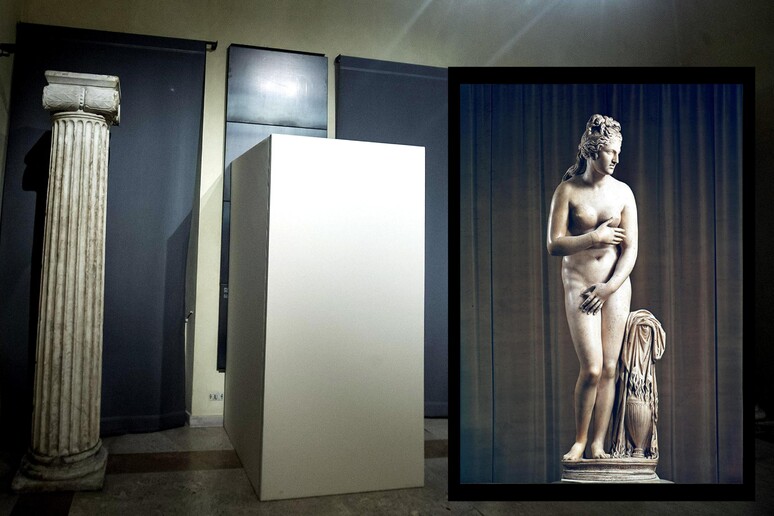(By Denis Greenan).
Premier Matteo Renzi was not
informed of a cover-up of nude statues for Iranian President
Hassan Rouhani's Rome visit that has sparked scorn from
government critics and amusement in the international media,
Culture Minister Dario Franceschi said Wednesday.
Franceschini said that the controversial decision to
cover up the nude statues at Rome's Capitoline Museums during
Rouhani's visit was "incomprehensible".
He added that neither he nor Renzi had been informed of
the decision to cover the statues.
"I think other ways could easily have been found to avoid
going against the sensibilities of such an important guest,
without this incomprehensible decision to cover the statues,"
Franceschini said after accompanying Rouhani on a visit to the
Colosseum before the president flew on to Paris.
The move to cover up the nudes was apparently made as a
form of respect for Iranian culture.
It has hit the headlines worldwide and prompted
astonishment and ridicule within Italy.
Rome's Culture Superintendency on Wednesday said it was
not behind the move and said that the premier's office organised
Rouhani's visit to the Capitoline Museums.
"You must ask the premier's office about the covered
statues at the Capitoline Museums during Iranian President
Rouhani's visit," the Superintendency said.
"The move was not decided by us. It (the visit) was
organised by the premier's office, not by us".
The premier's office said later it had opened an internal
investigation to ascertain responsibilities in the organization
of the visit.
Rouhani dismissed the controversy over the nude statues as
a "journalistic issue" on Wednesday.
"There were no talks about this," Rouhani told a press
conference when asked about the statues covered up at Rome's
Capitoline Museums when he visited on Monday.
"All I can say is that Italian people are very hospitable.
"They try to do everything to put you at ease and I thank
you for this".
Meanwhile critical reactions continued Wednesday.
Renato Brunetta, the Lower House whip for Silvio
Berlusconi's centre-right opposition Forza Italia party, said
Renzi was "ridiculous".
"Renzi says defence and culture (to combat terror),"
Brunetta said.
"Covering the statues in the Capitoline Museum - is that
culture? Is that defence of culture, of our history? Renzi is
ridiculous".
The Codacons consumer association said whoever decided to
cover up the statues should be sacked.
"They seriously damaged the honor and image of Rome and the
whole of Italy," Codacons said in a statement, adding it will
sue in the Audit Court for the expenses of covering the statues
to be charged to the decision-makers and not the taxpayers.
Also on Wednesday, the House and Senate caucuses of the
anti-establishment, anti-euro 5-Star Movement (M5S) said they
will put a parliamentary question to the government over the
statues.
"All they had to do, if they wanted to respect the modesty
and morality of President Rouhani and the Iranian people, was
change the itinerary," the caucuses said in a statement.
"Instead, the... government opted to prostrate itself".
Amusement and puzzlement continued to mark international
coverage of the cover-up.
The British press had a field day, eliciting a satirical
editorial by the Times in which Rouhani and Pope Francis engage
in an imagined chat over the propriety of covering the nudes.
The German press was perplexed, with well-known Bild
columnist Franz Josef Wagner calling the decision "like saying
to your relatives: I don't know you".
Articles across the German press highlighted the
incongruent fact that although Rouhani was in Rome to sign
important business accords, the decision to cover the statues
was based on the Iranian guests' religion.
"Are we back in 1546?" wrote Wagner, referring to Catholic
censorship of Michelangelo's work.
German daily Die Welt called the decision "debatable",
while Sueddeutsche Zeitung said it was "false modesty" and that
covering the statues was "wrong".
"There are things for which Europe should be ashamed. Its
art is not one of them," said Sueddeutsche Zeitung.
ALL RIGHTS RESERVED © Copyright ANSA











